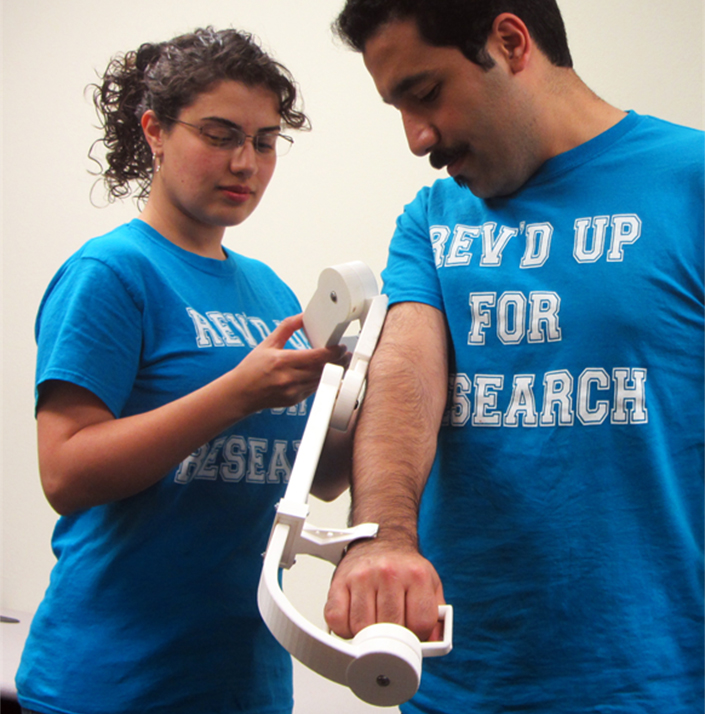Automated therapy: Building robots that can work with stroke patients

Two doctoral students in the Department of Mechanical Engineering are developing an intelligent rehabilitation device that will provide automated therapy to stroke patients that should speed their recovery.
Reza Langari, a professor of mechanical engineering and head of the Department of Engineering Technology and Industrial Distribution, leads the research group.
The students, Rana Soltani and Amin Zeiaee, recognize that treatment for stroke victims or others with limited mobility is expensive and inadequate, due to limited number of therapists and short therapy sessions. Also, treatment is available only outside of the home at a medical or rehabilitation facility.
“Therapy must be very repetitive and intensive to be effective and we want to develop a robot that can improve the quality of training for patients and assist the therapists,” said Zeiaee.
The device would train the arm for activities of daily living, such as brushing one’s teeth, eating, brushing hair, cleaning a surface and more.
“As motor abilities of a patient improve, the robot adaptively adjusts the provided support,” said Soltani. “It will be a robot collaborating with a human.”
The two also intend to involve virtual reality and gaming into a patient’s use of the device, making therapy a more engaging and pleasant activity.

